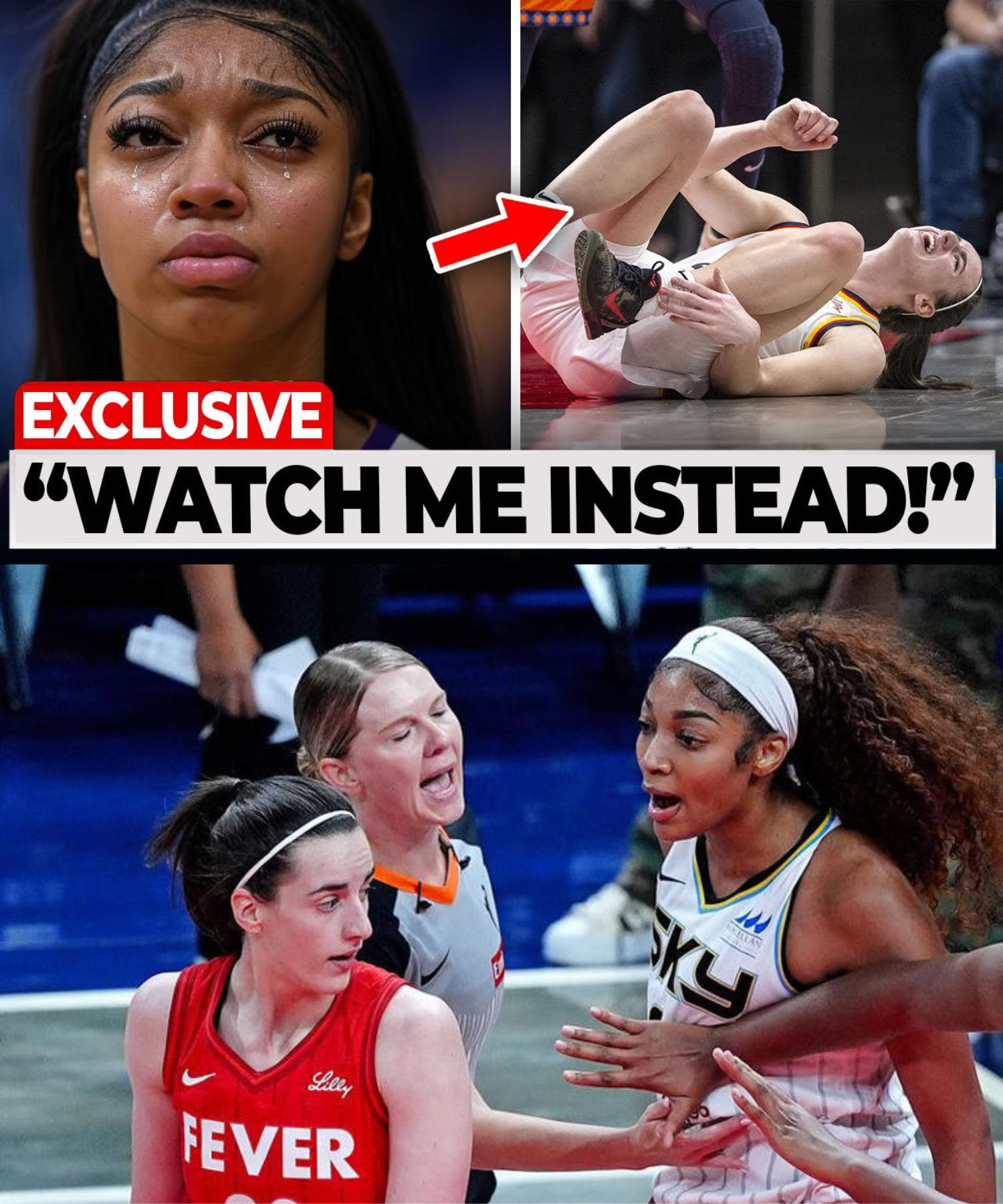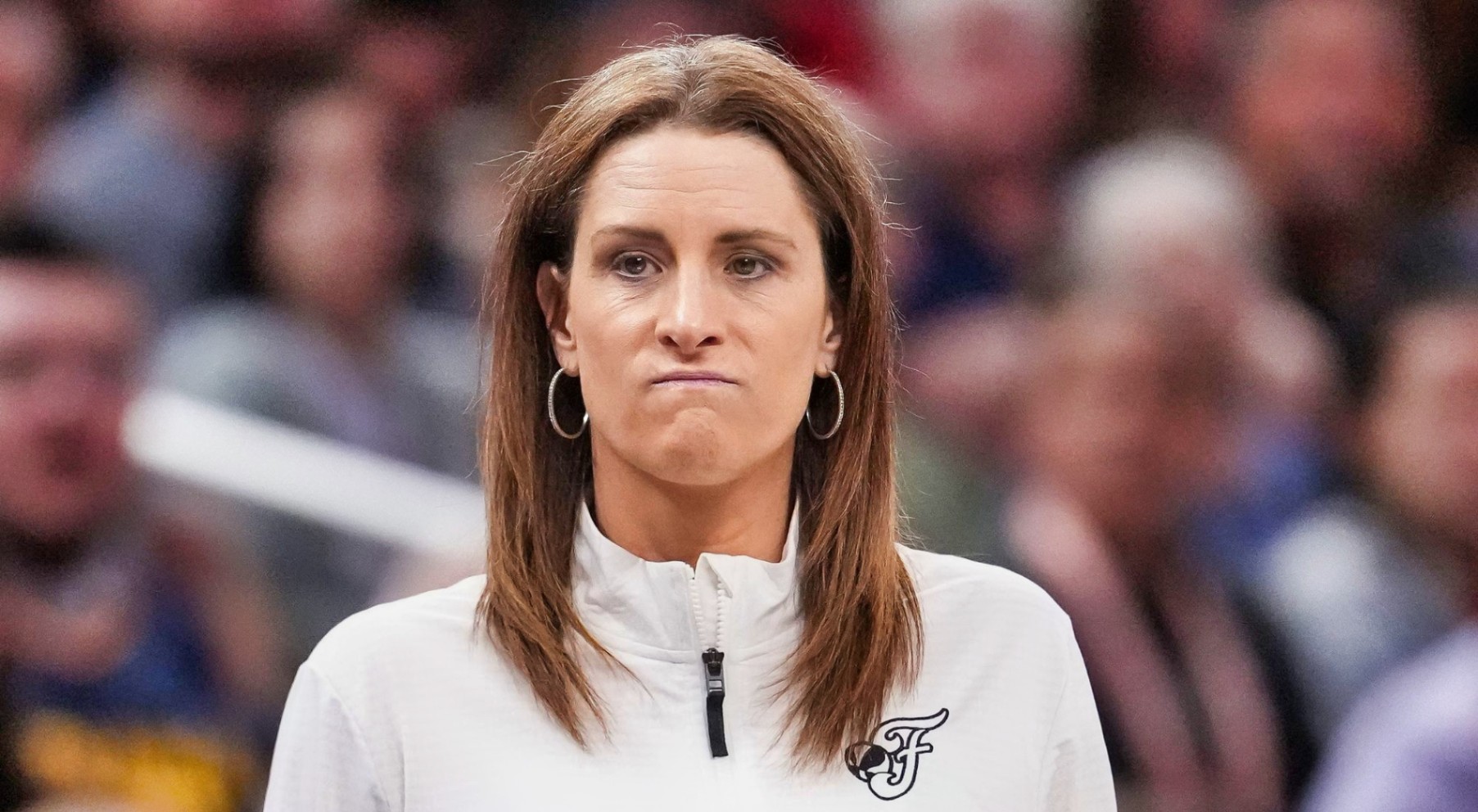

In a startling display that’s sent shockwaves through the WNBA, Chicago Sky forward Angel Reese erupted in frustration on the bench after being benched late in the fourth quarter of her team’s nail-biting loss to the Seattle Storm. The now-viral clip, captured by fans and later broadcast on The Daily Hoop, shows Reese—fresh off an NCAA championship run and an All-Star nod—slamming her clipboard, kicking a water bottle, and yelling at coaches before storming toward the locker room. The incident has reignited questions about her maturity, coachability, and whether her fiery temperament could undermine her promising professional career.
The Moment That Broke the Camel’s Back
It was the waning minutes of Tuesday night’s contest at Wintrust Arena. The Sky, clinging to a two-point lead, faced a relentless Storm comeback. With 4:12 remaining and Chicago’s offense stagnating, coach James Wade made a bold decision: bench his star forward, Angel Reese, in favor of fresh legs. As rookie forward Cheridene Green checked in, cameras panned to Reese on the bench—arms crossed, jaw clenched, eyes blazing.
“That moment when the camera cut to Reese,” said courtside reporter Marlena Ortiz, “you could feel the tension in the building. The crowd went silent.”
Within seconds, Reese tossed her clipboard to the floor with a resounding clatter, then launched into a tirade—yelling so loudly even the broadcast mics caught her expletives. A water bottle flew across the sideline, narrowly missing a ball boy. As security and teammates attempted to calm her, Reese stormed toward the tunnel, leaving the Sky scrambling to regroup.
A Pattern of Volatility?
This wasn’t Reese’s first public meltdown. Earlier this season, she was caught on camera pacing angrily after a questionable foul call, and at preseason training camp, teammates described “heated exchanges” during drills. While her passion and competitiveness are widely praised, critics argue those same traits spill over into unprofessional conduct.
“Angel’s intensity is her greatest asset and her biggest liability,” sports psychologist Dr. Rochelle Simmons told Fox News.
“When you can’t regulate that fire, it becomes destructive rather than motivating.”
A source inside the Sky organization—speaking on condition of anonymity—says coaches have privately warned Reese about emotional outbursts, but discipline has been minimal due to her rookie-of-the-year caliber performance.
Coach Wade’s Dilemma: Talent vs. Temperament
James Wade, a veteran coach known for balancing veteran and rookie personalities, faced a no-win scenario. Publicly, he defended the benching as a strategic move:
“We needed energy, fresh legs to close the game,” Wade explained postgame.
“That’s basketball—everyone has a role. Angel knows her role when we need a spark.”
Privately, however, the decision exposed a fracture in the Sky’s locker room. One assistant coach lamented, “Angel’s earned the right to be on the court, but her reaction jeopardized team unity. It’s a tough line to walk.”
With the Sky now 12-10 and slipping in the Eastern Conference standings, Wade must weigh Angel’s explosive talent against the potential cost of her volatility.
Fan and Media Backlash
Social media lit up within minutes of the clip’s release. #CalmDownAngel trended on X (formerly Twitter), with fans divided:
Supporters argued Reese’s passion drives her excellence, saying “you want that fire on your team.”
Critics called her “out of control” and “a locker-room cancer.”
National sports shows piled on. On FS1’s First Offense, pundit Tina McGhee blasted:
“You can’t have a franchise player stomping off like that. It sets a terrible example for teammates and fans.”
Meanwhile, ESPN’s Rachel Nichols urged understanding of rookie pressures:
“Angel came from the NCAA spotlight to pro expectations overnight. It’s a huge adjustment.”
The Sky’s Culture Test
For the Chicago Sky—once perennial contenders and now fighting for a playoff spot—Reese’s tantrum is a culture flashpoint. Team veterans A’ja Wilson and Kahleah Copper have built hard-earned credibility and expect professionalism. Sources say veteran leaders are urging Reese to tone down her outbursts:
“We respect her hustle—but we need her head in the game,” one Sky veteran revealed.
“When she goes off, it hurts all of us.”
Front office executives are watching the fallout closely. With playoff seeding on the line, they worry that unaddressed tension could derail the Sky’s second-half push.
Angel Reese Speaks Out
In a brief statement issued the next morning, Reese expressed regret but not contrition:
“I’m passionate about winning. Last night didn’t go our way, and I let emotions get the best of me. I apologize to my teammates and coaches. I’ll channel that energy in a positive way moving forward.”
Critics pounced on the “moving forward” phrasing, arguing it lacked a genuine apology. But supporters note her candor as a sign of growth.
“She owned it,” said Hall of Famer Lisa Leslie.
“We all lose our cool sometimes. It’s how you respond that matters.”
What’s Next for Reese—and the Sky?
As the Sky prepare for a critical road trip—including back-to-back games against playoff contenders Indiana and New York—Reese’s ability to refocus will be crucial. Coach Wade has hinted at consequences should volatility resurface:
“We’ll address it internally,” Wade warned. “There are standards here. Angel knows we all need to hold each other accountable.”
Sky management is reportedly considering implementing a mentorship program, pairing Reese with a veteran player for guidance on managing on-court pressure.
League executives are also keenly observing. The WNBA’s rapid growth—fueled by breakout stars like Caitlin Clark—demands consistent professionalism. The league cannot afford high-profile meltdowns to overshadow the game’s rising popularity.
The Broader Conversation: Passion vs. Professionalism
Angel Reese’s bench tantrum spotlights a larger tension in professional sports: how to balance raw emotion with polished presentation. From LeBron James’ infamous locker-room tirades to Serena Williams’ on-court protests, fans grapple with their dual desires for fiery passion and dignified conduct.
Sports business analyst Grant Andersen observes:
“Star power drives revenue, but controversies can alienate sponsors. Teams must guide young talents in navigating that tightrope.”
For Reese—a player whose athleticism and charisma have already made her a fan favorite—the next chapter hinges on mastering that balance. Channeling her competitive fire without letting it boil over could elevate her to true superstar status. Failing to do so risks categorizing her as a cautionary tale rather than a champion.
Final Takeaway: A Turning Point for a Young Star
Angel Reese’s bench-sideline meltdown is more than a viral moment—it’s a turning point in her young career. Her response, both immediate and long-term, will define whether she evolves into the leader the Sky and the league believe she can be, or whether her temper curtails her potential.
For the Chicago Sky, the challenge is clear: harness Reese’s passion, instill discipline, and solidify a winning culture. For fans, the roller-coaster of emotions this talent inspires is part of the allure—provided the drama stays within the lines of healthy competition.
One thing is certain: when Angel Reese takes the court next, all eyes will be on her—both her game and her composure. And the WNBA, riding record viewership and growing mainstream interest, will be watching too, hoping for a showcase of pure excellence rather than another emotional eruption.

